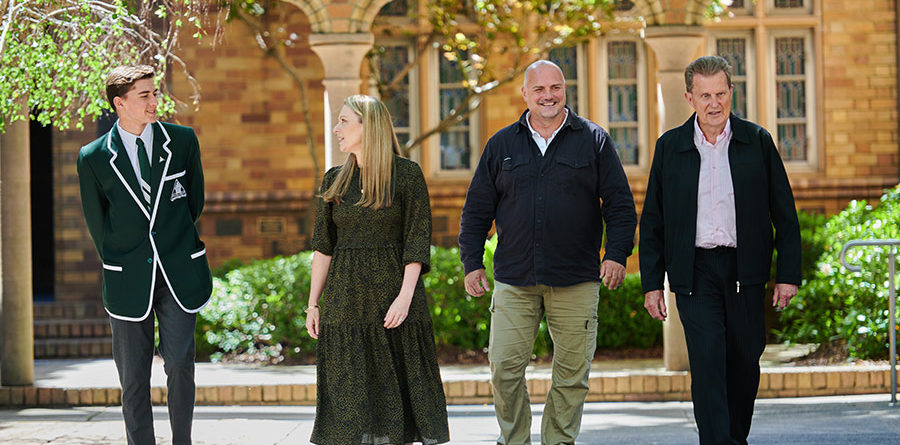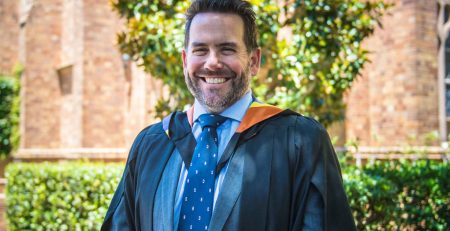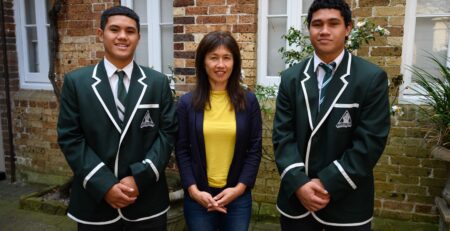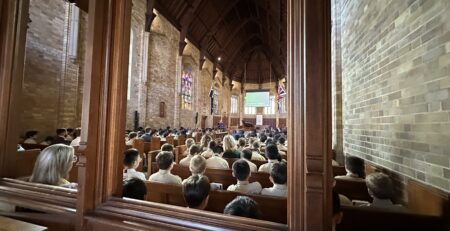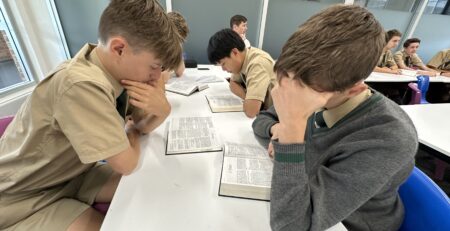Growing good men
When Cooper Hollis walks through Trinity’s weathered sandstone gateway he is acutely aware of his place in School history as the only fourth generation Trinitarian ever and the latest link in a century-old family tradition.
The unbroken Hollis lineage arches all the way back to World War One, spanning all but three of Trinity’s 107 years.
When the Year 11 student looks up towards the dining hall, he can see the room to the right where his father Andrew lived as a boarder in the 1980s, back when the boys wore boaters and there was an outdoor pool.
When Cooper crosses the quad he can picture it surrounded by a hedge, as it was in his grandfather John’s day in the 1950s, when his pop would buy a pie at the tuck shop for fourpence and a Paddle Pop for threepence, and play tennis on ground now occupied by the chapel.
Student numbers then were 510 – one quarter of the size today – and secondary schooling finished after five years.
With a greater effort of imagination, Cooper can understand what School life might have been like in the days of his great grandfather Harold “Jack” Hollis, who goes so far back that he predates the modern-day Summer Hill campus.
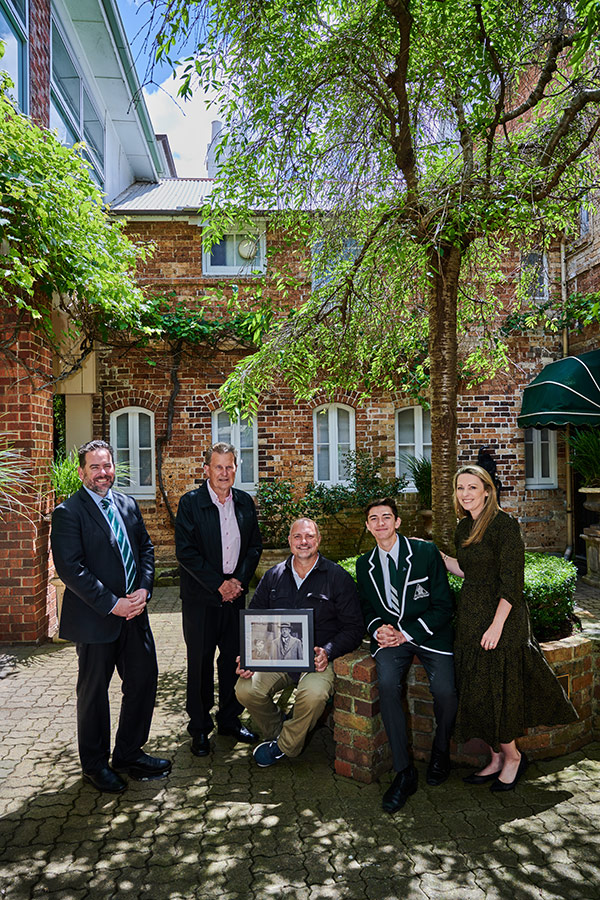
He was one of just 95 pupils and eight staff, two of whom – Mr Dunstan and Mr Dolph – created a 25 per cent hole in staff vacancies when they went off to enlist.
Jack’s son John, 82, who lives in Bathurst with his wife Margaret, studied mechanical engineering and had a long career with the state electricity commission. He started at the Trinity campus in Strathfield in Year 3.
Disciplining students was a far different thing back then, and he remembers a “fairly cranky” class mistress called Mrs McDonald who would “hit you on the shoulder with a ruler if you didn’t have things right”.
He values the companionship that Trinity gave him, attending with his son and grandson the annual Generations Breakfasts.
“I feel very attached to Trinity,” he said.
John’s son Andrew, a farm boy from Lithgow, boarded at Summer Hill in Years 11 and 12, and wishes he had started earlier.
“They were fantastic years,” he said. “Boarding was like being at boys camp the whole time. I enjoyed religion and a bit of correction. At Lithgow I was top of the top class; at Trinity I was bottom of the top class.”
There were no electronics. “It was rote learning and writer’s cramp,” he said. “Lots of trees had to die in our school days.”
Andrew said Trinity gave him tenacity, independence and a moral compass.
“You learned to look after yourself. Wednesday night and Sunday morning chapel gave the chance for reflection – where you were at and what you had coming.
“The school is absolutely magic. The opportunities are incredible, and the teachers go above and beyond.”
Cooper said Trinity allowed students to “become who you want to be”.
“There are ample opportunities to better myself, to grow in stature. The environment allows me to progress as a schoolboy, and a human being.
“For me, it’s about being able to take care of yourself, because taking care of others should be a given.”
Cooper’s mother Amanda said she knew from the first moment that Trinity was the place for him.
“It was meant to be,” she said. “I haven’t questioned that for one minute. I love the School.”

